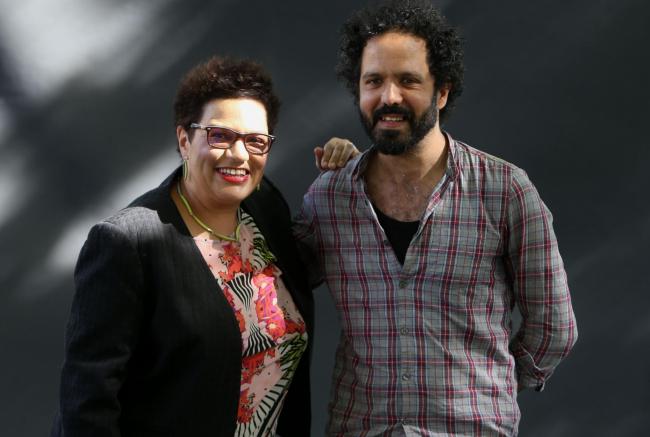There is an Igbo saying that ‘the middle ground is the best place to be’. But is this true in all situations? The middle ground between political parties? The middle ground between genders? How about the middle ground between races? The poets Jackie Kay and Zaffar Kunial explore this middle ground by discussing what it means to be a writer of mixed heritage writing in 21st century Britain.
The conversation kicks off with poems. Kay’s reading of In My Country calmly addresses the common ‘where are you really from?’ question with the answer ‘Here. These parts’. In Pride, she describes how she is recognised by a stranger who shares part of her heritage. ‘There was a moment when / my whole face changed into a map’ is particularly memorable, not just for its metaphorical merits, but also for its elegant explanation of a link between place and person. Kunial’s poem The succinctly expresses feeling simultaneously ashamed of his foreign heritage, ashamed of not being foreign enough and ashamed of the shame itself. He reads slowly and clearly, allowing full emphasis to fall on his father’s grammatical mistake: ‘enjoy the life’.
The topic grows from the middle ground between cultures and languages to the middle ground in literature. Kunial tells a story of looking at a portrait of Shakespeare, and seeing his own face half reflected in the glass. This helped spark the idea that when we read a text, the words and meanings are brought to the middle ground between reader and writer. Kunial also acknowledges literature’s ability to create a middle ground between the living and the dead. For instance, through literature, the living poet can connect with the dead playwright.
Kay follows this discussion with a poem that could summarise the entire discussion. Between the Dee and the Don is framed by the epitaph ‘the middle ground is the best place to be’. It touches on themes of mixed heritage as well as the middle ground ‘between laughter and sorrow’ that we all inhabit.
There are three strong conclusions from this discussion. Firstly, that one needn’t choose to side with one cultural identity. Kay tells us how someone once told her ‘you can be black aaaand Scottish’, with an extra long ‘and’ emphasising the combination. Secondly, Kunial makes the point that we are all mixed in some way. We are all formed of mixed experiences, mixed ideas and mixed memories. We are all in the middle ground from time to time. Finally, a member of the audience asks the poets whether they ever feel completely at home in their mixed race identities, or whether their comfort or discomfort depends on external acceptance. Kunial answers that the place where he feels completely at home is language.
